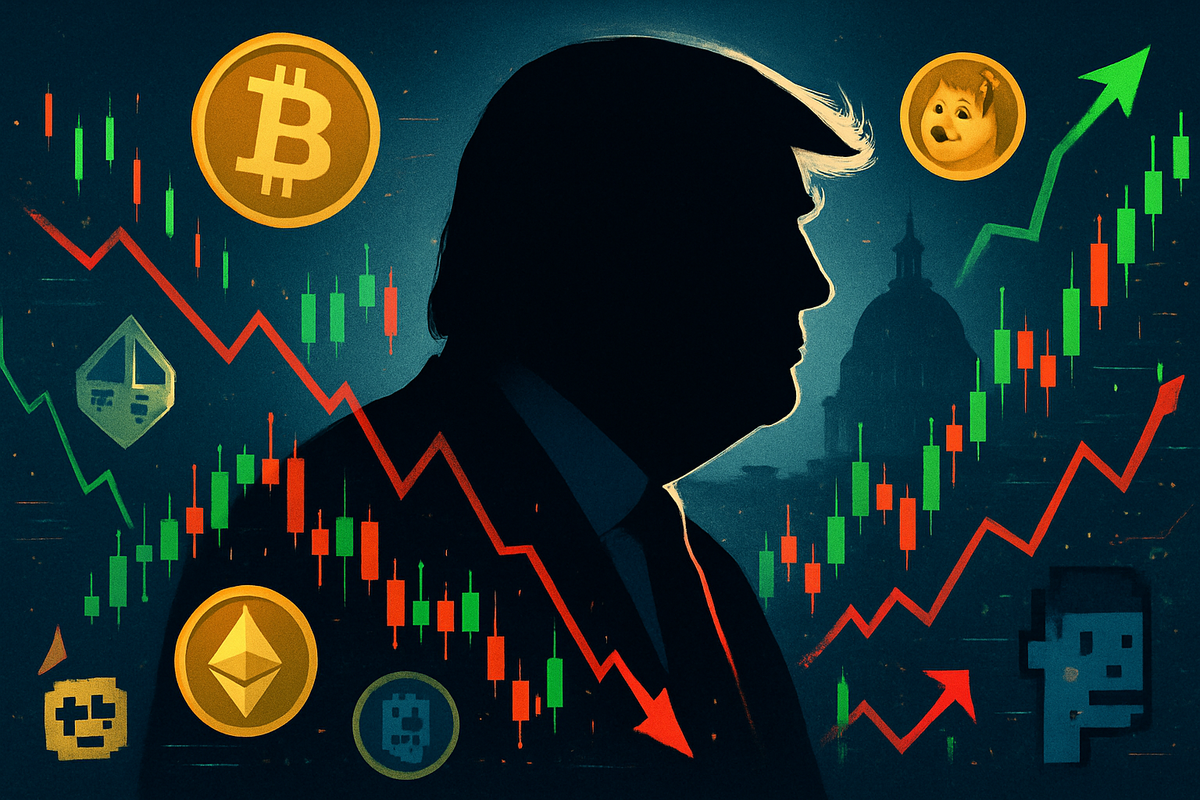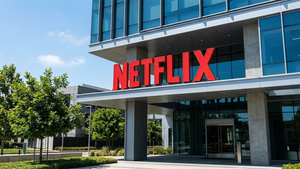
Donald Trump's dramatic pivot from cryptocurrency skeptic to fervent advocate has sent seismic waves through the digital asset market, ushering in an era of unprecedented volatility, market "pumps," and intense ethical scrutiny. Once dismissive of Bitcoin (BTC) as a "scam" and "based on thin air," the former—and now current—U.S. President has embraced the crypto realm with zeal, campaigning on promises to transform the U.S. into the "crypto capital of the world." This ideological shift has not only reshaped market sentiment but has also directly influenced the valuations of various cryptocurrencies, from established giants like Bitcoin (BTC) and Ethereum (ETH) to lesser-known altcoins like XRP, Solana (SOL), and Cardano (ADA), as well as a burgeoning ecosystem of Trump-branded digital assets, including NFTs and meme coins like $TRUMP and $MELANIA.
The implications of this evolution are far-reaching, intertwining the volatile world of digital finance with the equally unpredictable landscape of American politics. Investors and regulators alike are grappling with the consequences of a U.S. president's direct involvement in an asset class that is still finding its regulatory footing, raising critical questions about market integrity, conflicts of interest, and the future of digital asset policy.
The "Trump Pump" Unpacked: A Timeline of Influence
Donald Trump's journey from a crypto critic to a crypto champion has been a spectacle, marked by a series of statements, policy shifts, and personal ventures that have profoundly impacted the digital asset market. His initial skepticism, vocalized during his first term (2017-2021) with comments labeling Bitcoin as "not money" and a facilitator of illicit activities, gradually gave way to a more embracing stance. This pivot became evident around 2022 with the launch of his NFT collections, marking his initial foray into the digital asset space.
The 2024 presidential campaign served as a crucial turning point. Trump rebranded himself as a pro-crypto candidate, acknowledging Bitcoin as "incredible technology" and actively accepting crypto donations for his campaign. His rhetoric emphasized making the U.S. a "Bitcoin superpower" and ending the perceived "persecution" of the crypto industry by the preceding administration. Post-election, his administration wasted no time translating promises into policy. In January 2025, he appointed pro-crypto executives to key regulatory roles, including Scott Bessent as Treasury Secretary and Paul Atkins as SEC Chair, replacing Gary Gensler. A "crypto working group" was established to position the U.S. as a global crypto hub, with a focus on avoiding a Central Bank Digital Currency (CBDC) and developing a favorable regulatory framework. A landmark move came in March 2025 with an executive order to establish a "Strategic Bitcoin Reserve" and a broader "U.S. Digital Asset Stockpile," funded initially by seized assets and later expanded to include XRP, Solana, Cardano, and Ethereum, aiming to diversify government holdings. By July 2025, the GENIUS Act was signed into law, providing regulations and consumer protections for stablecoins.
These actions triggered what has been widely dubbed the "Trump Pump." Following his election victory in November 2024, Bitcoin's (BTC) price surged dramatically, surpassing $75,000 and then $100,000 for the first time, with many analysts attributing this to optimism surrounding his crypto-friendly policies. Other cryptocurrencies, including Ethereum (ETH) and Dogecoin (DOGE), also saw significant rallies. The announcement of the strategic reserve in March 2025 further fueled brief but substantial surges: XRP jumped approximately 34%, Solana (SOL) gained about 22%, Cardano (ADA) surged over 63%, and Ethereum (ETH) rebounded by 12%. Even Bitcoin climbed towards $95,000 post-announcement, recovering from an earlier dip. However, some of these gains proved fleeting, reflecting the inherent volatility of the market and a "buy the rumor, sell the news" phenomenon. Beyond established cryptocurrencies, Trump-branded digital assets like his "Trump Digital Trading Cards" (NFTs) also saw price spikes tied to political events, demonstrating the immediate and direct impact of his public profile on market performance.
The Shifting Tides: Winners and Losers in the Trump Crypto Era
Donald Trump's embrace of cryptocurrency has created a clear distinction between potential winners and those facing increased scrutiny or competition within the digital asset landscape. The most immediate beneficiaries have been the cryptocurrencies either explicitly endorsed by Trump or slated for inclusion in the proposed U.S. strategic reserve.
Winners:
- Bitcoin (BTC) and Ethereum (ETH): As the two largest cryptocurrencies by market capitalization, both Bitcoin and Ethereum have experienced significant "pumping" effects, particularly after Trump's election victory and the announcement of the strategic reserve. Bitcoin soared past $100,000 (BTC) following his win, and Ethereum (ETH) saw substantial rallies. The expectation of a more favorable regulatory environment under a Trump administration, coupled with the potential for government acquisition for the strategic reserve, has driven investor optimism.
- XRP, Solana (SOL), and Cardano (ADA): These altcoins, specifically named for inclusion in the "U.S. Digital Asset Stockpile," witnessed dramatic price surges immediately following Trump's March 2025 announcement. XRP (XRP) saw gains of over 30%, Solana (SOL) increased by over 20%, and Cardano (ADA) experienced a remarkable surge of 60-70%. This direct endorsement from a head of state signaled potential mainstream acceptance and investment, fueling intense speculative buying.
- Trump-Branded Digital Assets:
- Trump Digital Trading Cards (NFTs): These Non-Fungible Tokens have consistently seen price appreciation linked to significant political events or news surrounding Donald Trump. For example, the floor price of these NFTs jumped following his 2023 indictment and again after a failed assassination attempt in 2024, demonstrating their tight correlation with his public profile.
- $TRUMP (MAGA) Meme Coin: Launched by Donald Trump on the Solana (SOL) blockchain in January 2025, this meme coin experienced an explosive initial surge, climbing from around $10 to a peak of nearly $75, pushing its market capitalization to almost $11 billion. While highly volatile, it has seen subsequent "pumps" tied to specific events, such as invitations to a private dinner with the president for top holders. This coin (SOL: $TRUMP) directly leverages Trump's brand for speculative gains.
- $MELANIA Meme Coin: Launched by Melania Trump (SOL: $MELANIA) shortly after her husband's, this meme coin also saw a rapid initial surge, reaching over $5 and a market cap exceeding $5 billion. Its launch caused a significant drop in the $TRUMP coin's value as traders reportedly shifted holdings, indicating direct competition within the "PolitiFi" meme coin space.
- World Liberty Financial (WLFI): This decentralized finance (DeFi) platform, deeply intertwined with the Trump family, launched its native token (WLFI) and a stablecoin (USD1). Donald Trump's personal financial disclosures have reported substantial income from WLFI, and his family's significant control over WLFI tokens grants them governance rights, directly benefiting from the platform's success and any crypto-friendly policies.
- American Bitcoin Corp (ABTC): Co-founded by Eric Trump, this cryptocurrency mining company (NASDAQ: ABTC) recently went public, positioning itself to benefit from a pro-crypto administration that supports domestic mining operations and potentially eases regulatory burdens.
Potential Losers/Those Facing Scrutiny:
- Crypto Firms Targeted by Previous Administrations: Companies that faced aggressive enforcement actions or lawsuits under the Biden administration and former SEC Chair Gary Gensler, such as Coinbase (NASDAQ: COIN), might see a reprieve. However, their past legal battles and the shifting regulatory sands underscore the risks of operating in a politically charged environment.
- Decentralized Autonomous Organizations (DAOs) and Truly Decentralized Projects: While a "lighter touch" regulation might benefit some, the focus on government-controlled strategic reserves and the scrutiny on meme coins with centralized affiliations could place truly decentralized projects in a complex position, where their lack of a central authority might be viewed as both a strength and a potential regulatory challenge.
- Advocates for Strict Regulation: Groups and individuals pushing for more stringent cryptocurrency regulations to protect consumers and prevent market manipulation may find their efforts hampered by a pro-crypto administration seeking to foster innovation with a "lighter touch."
The impact on public companies extends beyond just direct crypto holdings. Technology companies involved in blockchain infrastructure, digital asset custody, or even payment processing for crypto (e.g., Block Inc. (NYSE: SQ), Robinhood Markets (NASDAQ: HOOD)) could see increased business if mainstream adoption accelerates under a crypto-friendly administration. Conversely, financial institutions heavily invested in traditional finance that are slow to adapt to digital assets might face competitive pressures.
Industry Tremors: Broader Implications and Ethical Minefields
Donald Trump's immersion in the cryptocurrency market transcends individual asset price movements; it has triggered a profound re-evaluation of ethical boundaries, market integrity, and regulatory frameworks within the digital asset industry. His actions are not merely a reflection of broader trends but are actively shaping them, with significant ripple effects across the financial landscape.
One of the most pressing concerns revolves around ethical conflicts of interest and market manipulation. As a sitting president with vast personal holdings in cryptocurrencies, NFTs, and a DeFi platform (World Liberty Financial (WLFI)), Trump's policy decisions and public statements carry immense weight. Ethics watchdogs and lawmakers have raised alarms over his refusal to place these assets in a blind trust, suggesting a direct incentive for his administration to enact policies that benefit his private financial interests. The U.S. Senate's Permanent Subcommittee on Investigations (PSI) is actively probing accusations of "pay-to-play" schemes, specifically examining promotions like a "Dinner with Trump" for top $TRUMP token holders. Critics argue this constitutes "marketing access to himself as a way to profit his memecoin," blurring the lines between public service and private financial gain, and deeming it "doubly corrupt" and "unprecedented." Furthermore, concerns about foreign influence via blockchain have emerged, with the PSI investigating the ownership of $TRUMP by individuals like Justin Sun, a Chinese-born crypto entrepreneur, raising national security red flags.
The significant market volatility directly attributable to Trump's pronouncements is another major implication. His public endorsement of the $TRUMP token on Truth Social directly led to an "astonishing surge" in its value, followed by sharp declines. Similarly, the $MELANIA token experienced an extreme boom-and-bust cycle. Even tangential comments from the president have demonstrably impacted these tokens, highlighting the market's sensitivity to his influence. Beyond meme coins, the broader crypto market saw Bitcoin (BTC) surge past $100,000 (BTC) after his election, with analysts attributing nearly $2 trillion to the crypto market in 2024 to the "Trump bump." This demonstrates how political narratives and candidate stances have become pivotal drivers of market volatility and opportunity.
Regulatory scrutiny and policy implications are undergoing a dramatic shift. While the Senate investigates potential legal violations, the Trump administration has adopted a "lighter touch" regulatory approach. This has reportedly involved the Securities and Exchange Commission (SEC) dropping or pausing investigations into numerous crypto firms, some allegedly linked to donors or allies. Critics argue that policy decisions, such as the SEC's February 2025 decision to exempt memecoins from regulation, directly benefited Trump's $TRUMP token. The appointment of pro-crypto figures to lead key financial regulatory bodies, coupled with new legislation like the GENIUS Act for stablecoins and an executive order allowing 401(k) retirement plans to invest in cryptocurrency, all signal a concerted effort to foster a crypto-friendly environment. While proponents argue this boosts innovation, critics fear it could lead to regulatory arbitrage and increased risks for investors.
This phenomenon fits into broader industry trends, particularly the politicization and mainstreaming of cryptocurrency. Trump's actions exemplify the "celebrity effect," where high-profile individuals significantly influence crypto prices and public perception, giving rise to "PolitiFi" coins. His active participation and pro-crypto policies are accelerating the mainstream adoption and legitimization of digital assets, but through a highly contentious political channel. The U.S. government's explicit rejection of CBDCs and embrace of open public blockchains position it distinctly in the global crypto landscape. This also sets regulatory precedents for how political figures interact with emerging asset classes, blurring the lines between politics and regulation. The push for a "lighter touch" regulation, while potentially fostering innovation, also creates an environment ripe for less scrupulous actors, which could erode investor confidence. The crypto industry's increased lobbying efforts in Washington have clearly paid dividends, but the risks to market integrity from politically charged meme coins and the blurring of public service with private financial gain could ultimately invite stricter regulations for the entire industry.
The Road Ahead: Navigating the New Crypto Frontier
The path forward for the cryptocurrency market under a Trump administration is likely to be characterized by continued innovation, but also by persistent volatility and heightened ethical debates. In the short term, we can anticipate further executive orders and legislative efforts aimed at solidifying the U.S. as a crypto hub, potentially expanding the "U.S. Digital Asset Stockpile" to include more assets or establishing clearer guidelines for institutional investment. The "lighter touch" regulatory approach from agencies like the SEC is expected to persist, potentially leading to fewer enforcement actions against crypto firms and a more permissive environment for new projects. This could, in turn, spur further market activity and attract more institutional capital. However, the market will remain acutely sensitive to Donald Trump's public statements and any developments surrounding his branded digital assets, ensuring ongoing "Trump Pump" events and corresponding corrections.
In the long term, the implications are more profound. A sustained pro-crypto stance from the executive branch could fundamentally reshape the global regulatory landscape for digital assets, potentially setting a precedent for other nations. This could accelerate mainstream adoption, leading to cryptocurrencies becoming more integrated into traditional financial systems and daily commerce. However, the ethical concerns surrounding potential conflicts of interest and market manipulation are unlikely to dissipate; indeed, they may intensify. Congressional oversight bodies, like the Senate PSI, are expected to continue their investigations, potentially leading to legislative challenges or increased demands for transparency from political figures involved in the crypto space. The rise of "PolitiFi" coins and the blurring of lines between politics and finance will likely spark debates about new disclosure requirements and ethical guidelines for public officials.
Market opportunities will emerge for companies specializing in blockchain infrastructure, secure digital asset custody, and innovative DeFi solutions, particularly those that can align with a more permissive U.S. regulatory environment. Challenges will persist around regulatory clarity for certain asset classes, especially as new and complex digital instruments emerge. Investors should brace for continued market volatility driven by political cycles and specific policy announcements. The primary scenario is one of accelerated growth and innovation within a more politically friendly regulatory ecosystem, but this will be balanced by an ongoing struggle to address ethical concerns and establish robust investor protections.
Conclusion: A New Era of Politicized Digital Finance
Donald Trump's transformation from a crypto skeptic to an outspoken advocate marks a pivotal moment in the history of digital assets, fundamentally reshaping the market's trajectory and introducing an unprecedented level of political influence. The "Trump Pump" effect, evident across Bitcoin, Ethereum, the strategic reserve altcoins (XRP, Solana (SOL), Cardano (ADA)), and his own branded NFTs and meme coins ($TRUMP, $MELANIA), underscores the significant impact a single political figure can have on an emerging asset class. This direct involvement has undeniably fueled market volatility, with assets experiencing dramatic surges and sharp corrections often tied to his public statements and actions.
Moving forward, the cryptocurrency market will operate within a new paradigm where political endorsements and policy decisions from the highest levels of government directly dictate market sentiment and asset valuations. Investors must remain vigilant, monitoring not only technological advancements and market fundamentals but also the evolving political landscape and potential regulatory shifts. The ongoing ethical scrutiny and accusations of market manipulation will continue to be a defining feature of this era, prompting a critical examination of transparency, conflicts of interest, and the need for robust investor protections in a rapidly evolving and increasingly politicized digital finance world. The lasting impact of this period will likely be a more mainstreamed, albeit more complex and ethically challenged, cryptocurrency industry, where the interplay between politics and finance is more entangled than ever before.
In the coming months, investors should closely watch for further policy announcements from the Trump administration, any new developments in congressional investigations into crypto-related ethical concerns, and the performance of both established and Trump-branded digital assets as the market continues to react to this unique confluence of politics and digital finance. The "Trump Crypto Conundrum" is far from over, and its unfolding will undoubtedly continue to make headlines and reshape the future of money.





